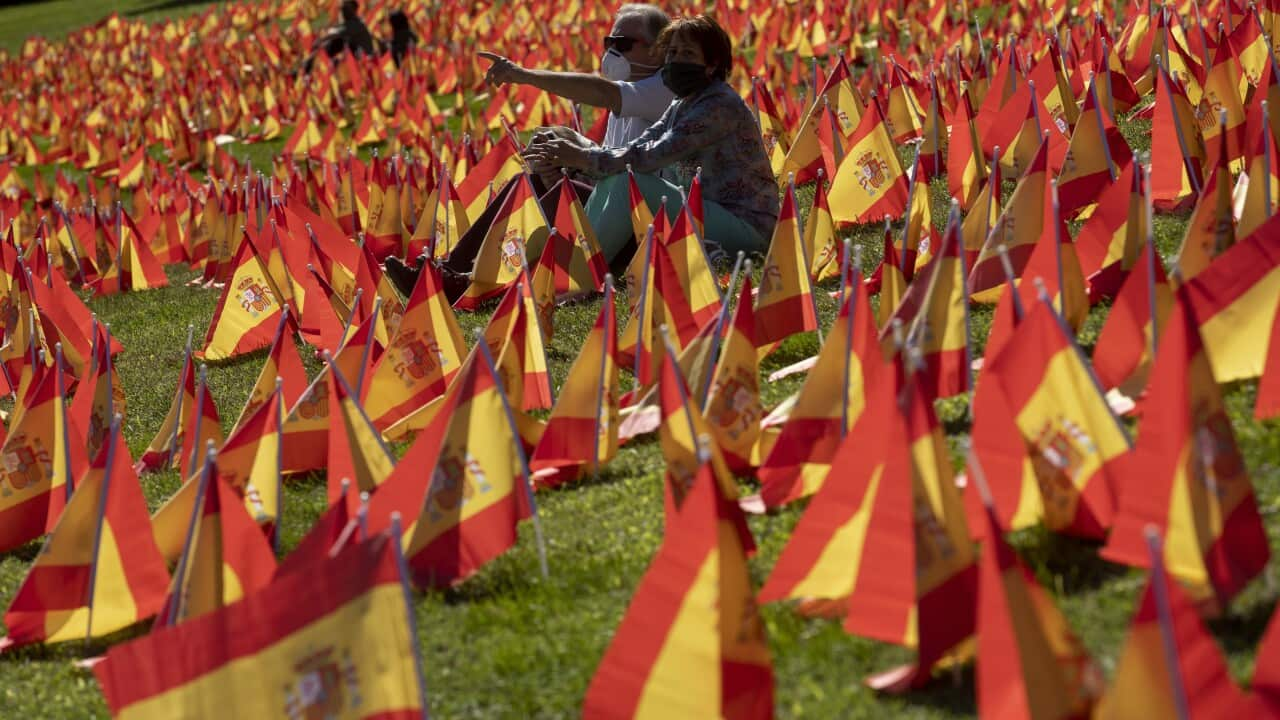Some 120 million rapid tests for COVID-19 will be made available to poorer countries at $5 each, the World Health Organization announced Monday - if it can find the money.
The WHO said the $600 million scheme would enable low- and middle-income countries to close the dramatic gap in testing for the new coronavirus, which has now killed more than a million people since first being recorded in China in December.
The quick tests, to be distributed across 133 countries over the next six months, are not as reliable as the regular PCR nasal swab tests but are far faster, cheaper and easier to carry out.
"We have an agreement, we have seed funding and now we need the full amount of funds to buy these tests," WHO director-general Tedros Adhanom Ghebreyesus told a virtual press conference.
Last week, the WHO issued the first emergency-use listing for a quality, antigen-based rapid diagnostic test (RDT), with others expected to follow.
"A substantial proportion of these rapid tests - 120 million - will be made available to low- and middle-income countries," said Dr Ghebreyesus.
"These tests provide reliable results in approximately 15 to 30 minutes, rather than hours or days, at a lower price, with less sophisticated equipment.
"This will enable the expansion of testing, particularly in hard-to-reach areas that do not have lab facilities or enough trained health workers to carry out PCR tests."

Coronavirus testing kit, standard Q Covid-19 Rapid Antigen Test strips produced by SD Biosensor Inc. for rapid Antigen Testing. Source: SIPA USA
No lab required
The Global Fund to Fight AIDS, Tuberculosis and Malaria, which is co-convening the WHO-led pooled global search for Covid-19 diagnostics, is putting in $50 million from its Covid-19 response pot.
Global Fund executive director Peter Sands said the RDTs were no silver bullet but were a hugely valuable complement to PCR tests.
"Although they are a bit less accurate, they're much faster, cheaper and don't require a lab," said Mr Sands.
"This will enable low- and middle-income countries to begin to close the dramatic gap in testing."
Mr Sands said that currently, high-income countries were conducting 292 tests per day per 100,000 people; upper-middle-income countries 77; lower-middle-income countries, 61; and low-income countries, 14.
He said that if the poorest countries were testing at the same rate as the richest, 120 million tests would not last two weeks.
The tests could be used where PCR tests are unavailable; quickly testing contacts where a PCR test has confirmed a case; and in places with widespread community transmission.
Mr Sands said the first orders were going in this week.
The tests are being produced by two companies: US multinational Abbott Laboratories and South Korea-based SD BioSensor.
The 120 million tests reflect 20 per cent of the firms' manufacturing capacity. The other 80 percent remain available for procurement.
On Monday, coronavirus had claimed nearly one million victims from more than 33 million recorded infections.
"The current numbers are likely an under-estimate of the true toll," said WHO emergencies director Michael Ryan.
He said on Friday that another million deaths were "highly likely" before a vaccine comes around, unless countries and individuals take collective action to combat the spread of the virus.
People in Australia must stay at least 1.5 metres away from others. Check your state’s restrictions on gathering limits. If you are experiencing cold or flu symptoms, stay home and arrange a test by calling your doctor or contact the Coronavirus Health Information Hotline on 1800 020 080. News and information is available in 63 languages at .



